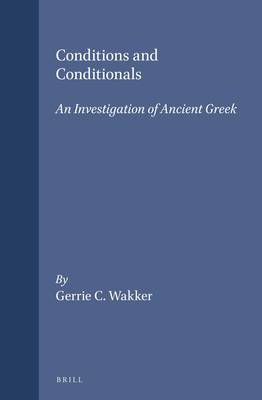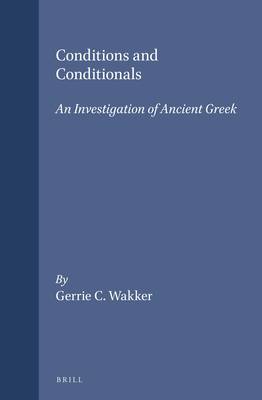
- Afhalen na 1 uur in een winkel met voorraad
- Gratis thuislevering in België vanaf € 30
- Ruim aanbod met 7 miljoen producten
- Afhalen na 1 uur in een winkel met voorraad
- Gratis thuislevering in België vanaf € 30
- Ruim aanbod met 7 miljoen producten
Zoeken
Omschrijving
When Protagoras remarks "if you like, let us assume that justice is holy and holiness just", Socrates replies "No, I do not want this 'if you like' or 'if you agree' sort of thing to be put to the proof (-); our statement will be most properly tested if we take away the 'if'" (Plato Protagoras 331c3-d1). This passage may be considered one of the oldest passages reflecting on the pragmatic functions of 'if', and the importance of 'if' in human reasoning. This book develops a linguistic framework to analyse conditionals, for which the apparatus of Functional Grammar provides a basis. Within this framework a detailed analysis is given of conditionals in Ancient Greek, in which syntactic, semantic as well as pragmatic factors are used to explain the multifarious uses of the important but elusive conjunction ei.
Specificaties
Betrokkenen
- Auteur(s):
- Uitgeverij:
Inhoud
- Aantal bladzijden:
- 464
- Taal:
- Engels
- Reeks:
- Reeksnummer:
- nr. 3
Eigenschappen
- Productcode (EAN):
- 9789050631969
- Verschijningsdatum:
- 1/01/1994
- Uitvoering:
- Hardcover
- Formaat:
- Genaaid
- Afmetingen:
- 165 mm x 241 mm
- Gewicht:
- 1043 g

Alleen bij Standaard Boekhandel
+ 424 punten op je klantenkaart van Standaard Boekhandel
Beoordelingen
We publiceren alleen reviews die voldoen aan de voorwaarden voor reviews. Bekijk onze voorwaarden voor reviews.











